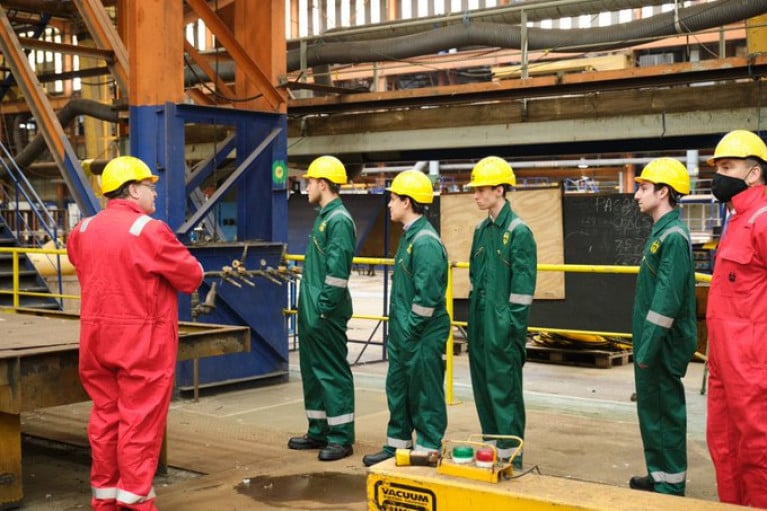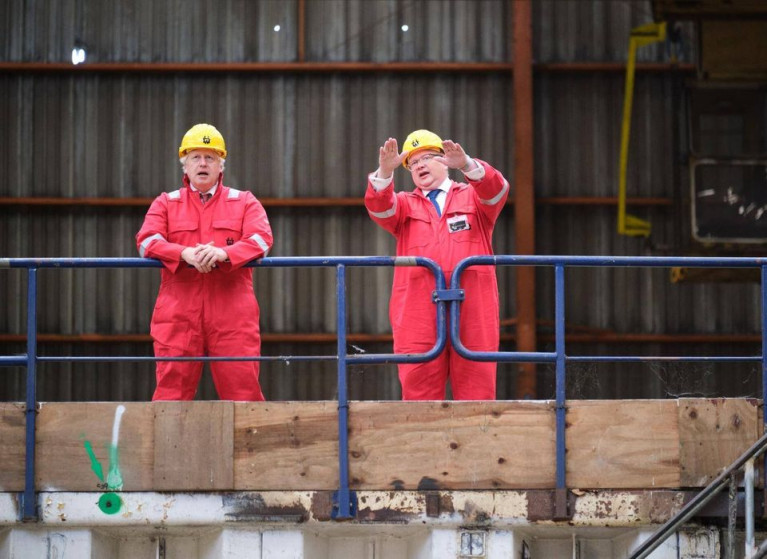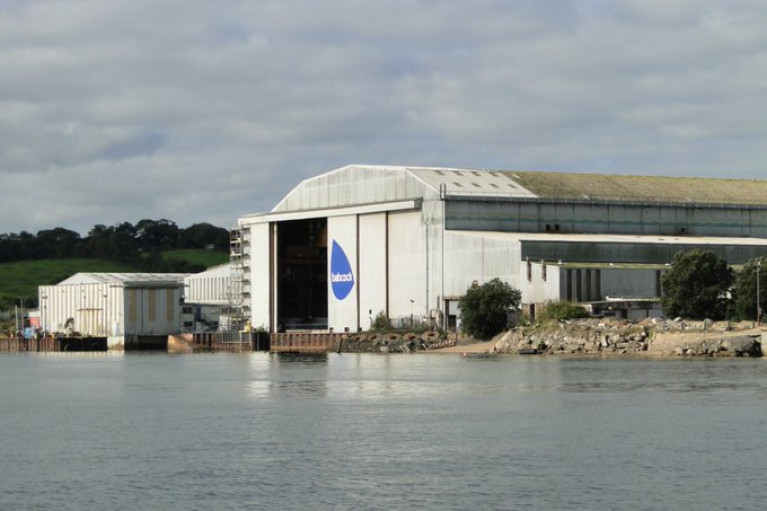Displaying items by tag: H&W Appledore
 Harland & Wolff's Appledore Shipyard Secures ‘Watershed’ Defence Contract
Harland & Wolff's Appledore Shipyard Secures ‘Watershed’ Defence Contract
 Harland & Wolff's Appledore Shipyard Secures ‘Watershed’ Defence ContractHarland & Wolff's Appledore shipyard has been awarded a £55m contract to regenerate a former Royal Navy mine-hunting vessel, with the "watershed" agreement set to support 100 jobs at the company's south-west England facility.
Harland & Wolff's Appledore Shipyard Secures ‘Watershed’ Defence ContractHarland & Wolff's Appledore shipyard has been awarded a £55m contract to regenerate a former Royal Navy mine-hunting vessel, with the "watershed" agreement set to support 100 jobs at the company's south-west England facility.
On behalf of the Lithuanian Government, the Defence Equipment Sales Authority (DESA) awarded the contract that will see HMS Quorn (see former fleetmate) renovated and restored at the Appledore Shipyard, bolstering NATO maritime capability in Europe.
Supporting ambitions to bolster British shipbuilding, the work will see an influx of contractors for the project across the local and national supply chain.
This includes 14 major subcontract packages in engineering, equipment and integration, along with other refurbishment services.
John Wood, group chief executive of Harland & Wolff, said: "This is a watershed moment. This contract has provided the breakthrough that we needed to activate the fifth and final element of our business strategy – the key market of defence.
More on the contract InsiderMedia has a report.
Harland & Wolff has announced that it will soon be launching a new apprenticeship scheme at the 160 year old historic shipyard that last year notably signed a letter of intent to build ships again.
The scheme is set to officially launch later this year across both the flagship Belfast and the newly acquired Appledore sites, as Afloat reported. The Devon shipyard had up to 2018 built OPV's for the Naval Service.
Apprenticeships offered will be across three distinct functions, Trade, (welders, pipefitters, electricians, riggers, fabricators, etc) Technical, (engineers, naval architecture) and Business Support (sales, administration).
Highlights of the unique training programme will include practical on-the-job training, one to one mentoring alongside its experienced workforce, shipyard training facilities and the opportunity to earn while you learn.
As part of the scheme, apprentices will have the chance to experience working across Harland & Wolff’s five key sectors; cruise & ferries, defence, oil & gas, commercial and renewables, as well as across the full lifecycle of services it offers; technical services, building and fabrication, repair and maintenance, in service support, conversion, and decommissioning.
Prospective apprentices will be able to register their interest on the Harland & Wolff website here.
Harland & Wolff would also like to hear from any relevant apprentices who have been unable to complete their apprenticeship through the recent loss of employment.
H&W Appledore to Host 'Career' Open Days for Prospective Workers At Renamed UK Shipyard
Initial steps to getting local workers back through the gates of Appledore Shipyard in the UK began last week with two careers open days.
New operator Harland & Wolff is hosting to events at the Cornish site for prospective employees on Thursday, September 10 and Friday, September 11.
As NorthDevonGazette reports, the company says they are being held in readiness for ‘highly anticipated new contracts’ and says they will provide the opportunity to meet and speak with existing Harland & Wolff employees who can share their experiences.
The free events will run from 9am on Thursday and 8am on Friday, until 6pm on both days, with one hour time slots that can be booked via the Harland & Wolff website – details below.
The union Unite said it regarded the careers days as the first step in getting shipbuilding restarted as soon as possible at the renamed Harland and Wolff Appledore – but warned that will also need active involvement from the government.
Appledore shipyard was closed in March 2019 by previous owner Babcock after 164 years, with the loss of about 200 jobs.
For more click here in addition for prospective workers you can register here for the Career Open Days.
Afloat adds the shipyard has been renamed H&W Appledore near Bideford from where the last ship built at the south-west England shipyard was ordered by the Irish Government Department of Defence. This led to fourth OPV90 /P60 class L.E. George Bernard Shaw (P54) floated out on the River Torridge.
Historic UK Shipyard Appledore Acquired by Owners of Harland & Wolff
In the UK the Appledore Shipyard in south-west England which built its last ship for the Irish Naval Service is set to reopen, it has been announced.
The historic shipyard as previously reported, has been acquired by Infrastrata, the owners of Belfast shipyard Harland and Wolff.
The deal will see the shipyard, which was closed by Babcock in March 2019, renamed H&W Appledore.
Infrastrata acquired the Belfast yard in December 2019, and believe the Appledore facility will be the ‘go-to’ yard in the region for small vessel requirements.
It said while each yard will be a standalone business in its own right, Appledore would be ideally placed to handle any extra work from Belfast.
The acquisition only comes with one employee – the site manager – but the company believes the workforce can be ‘very quickly ramped up’ upon the execution of contracts, and said discussions with the Government and private vessels were already under way.
For further reading NorthDevonGazette has more.
































































